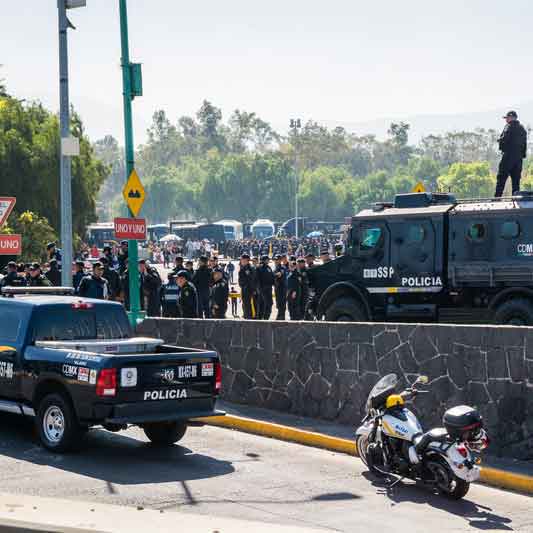Mexican mayoral candidate Alfredo Cabrera was assassinated during his final campaign rally on May 29 in Coyuca de Benitez, Guerrero, Mexico. His murder, captured in a shocking video, adds to the escalating number of political killings seen in the 2024 Mexican election cycle.
Cabrera was fatally shot at point-blank range by an unidentified gunman while interacting with his supporters. The video captured the mayoral candidate’s last moments as he stood ready to address a crowd of approximately 300 attendees.
The shooter was neutralized on the spot, according to eyewitness reports, causing chaos among the crowd. The National Guard, present at the event, reacted swiftly to the crisis.
Evelyn Salgado, Governor of Guerrero, condemned the assassination, labeling it a “cowardly act.” She urged the State of Guerrero’s Attorney General’s Office to carry out a thorough investigation and bring those responsible to justice. The state prosecutor’s office confirmed the shooter’s death at the scene and stated that investigations are ongoing.
Cabrera’s assassination is indicative of a wider pattern of violence against politicians in Mexico. Unprecedented violence has marked the 2024 election cycle with over 36 candidates reported killed, making it the deadliest in Mexican history.
A day before Cabrera’s killing, another mayoral candidate, Ricardo Arizmendi, was murdered in the central state of Morelos. In addition, Gilberto Palomar, another candidate, was injured by gunfire in Jalisco state. These incidents underscore the significant security issues facing candidates across Mexico.
Often, the violence against politicians is connected to drug cartels and organized crime groups attempting to control local governments. Since the Mexican government started deploying the military to counter drug trafficking in 2006, over 450,000 people have been killed and thousands remain missing. This ongoing conflict presents a significant hurdle for the incoming Mexican president.
President-elect Claudia Sheinbaum has pledged to continue the current administration’s “hugs not bullets” strategy, focusing on social programs to address the root causes of violence. Her main opponent, Xóchitl Gálvez, advocated for a tougher stance on cartel-related violence.
Sheinbaum expressed condolences to Cabrera’s family and supporters, stating, “We must ensure that our electoral process is safe and that our democracy is protected.” Gálvez also decried the attack, describing Cabrera as “a generous and upstanding man” and calling for improved protection for political candidates.
To enhance security on Election Day, June 2, the Mexican government deployed 27,000 soldiers and National Guard members.
“The violence we are witnessing is a direct threat to Mexico’s democratic institutions. The government must take decisive action to protect candidates and ensure the integrity of the elections,” commented political analyst Alejandro Moreno.
The U.S. State Department has voiced its concern about the escalating violence in Mexico, encouraging the Mexican government to take all necessary measures to safeguard its citizens and maintain the solidity of its democratic processes.

